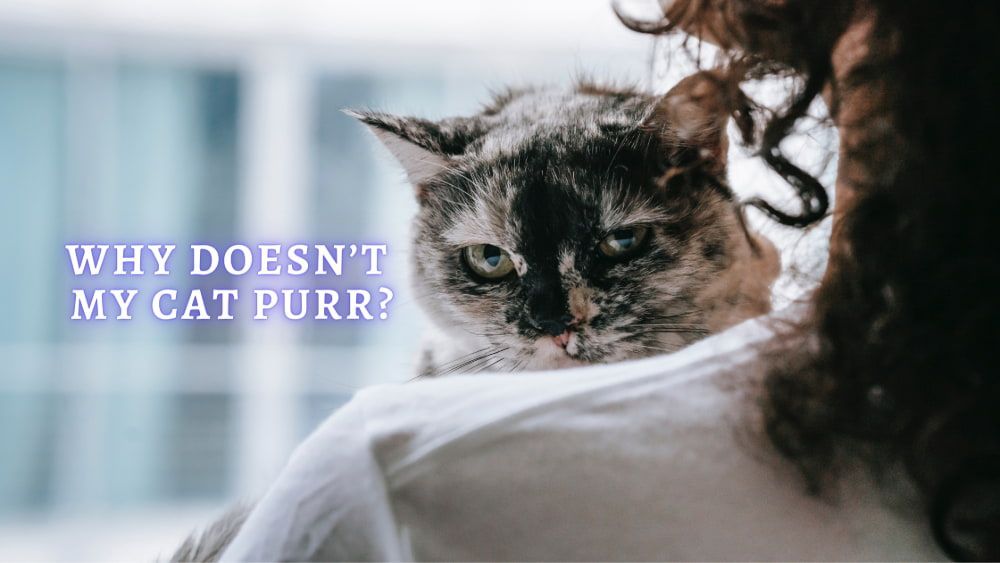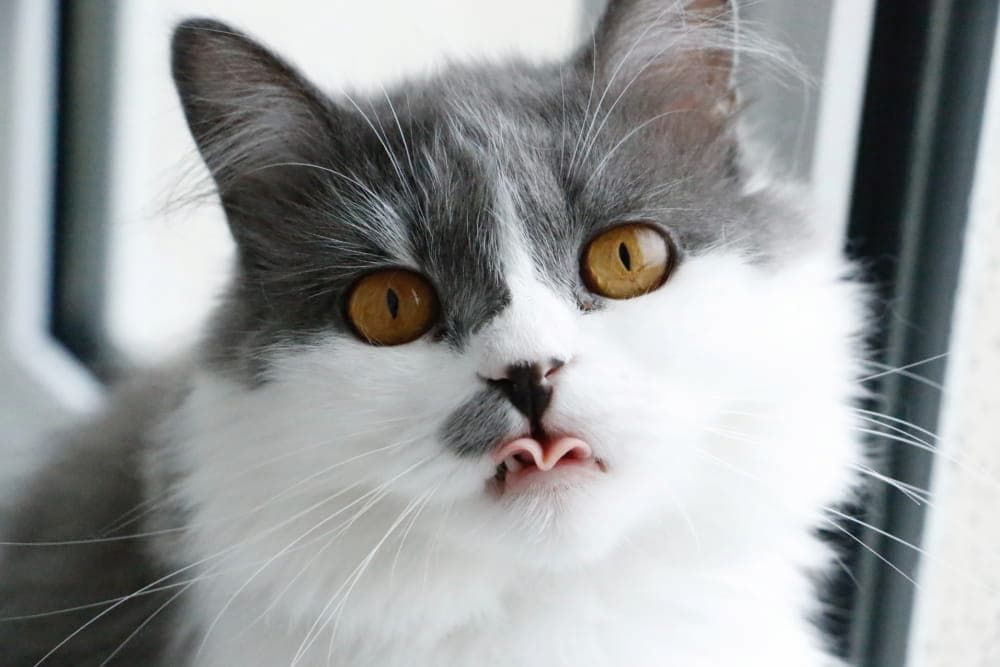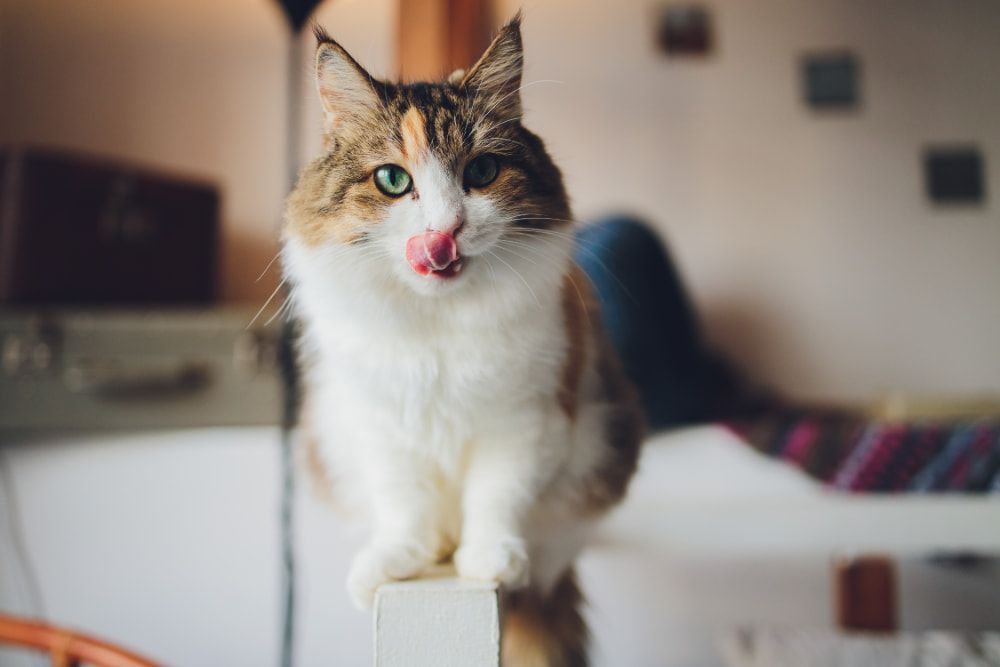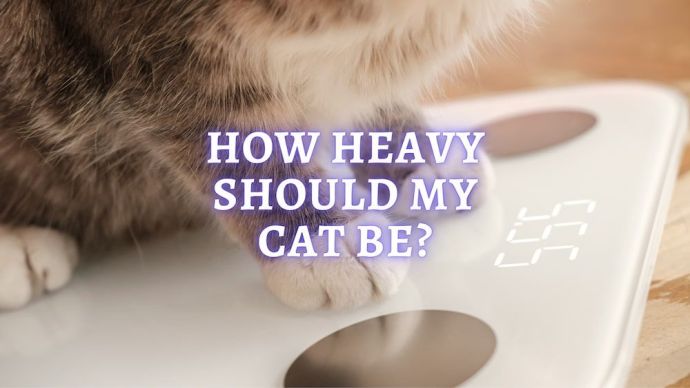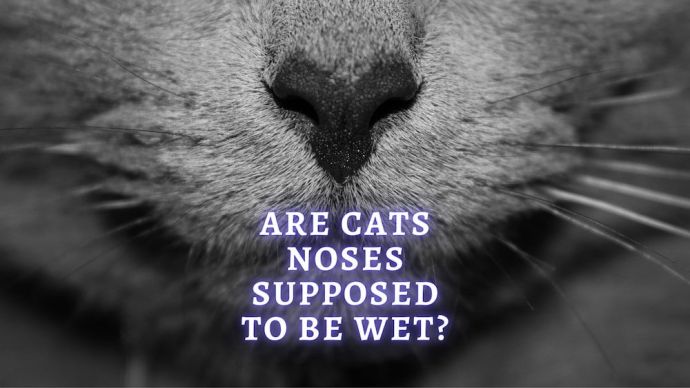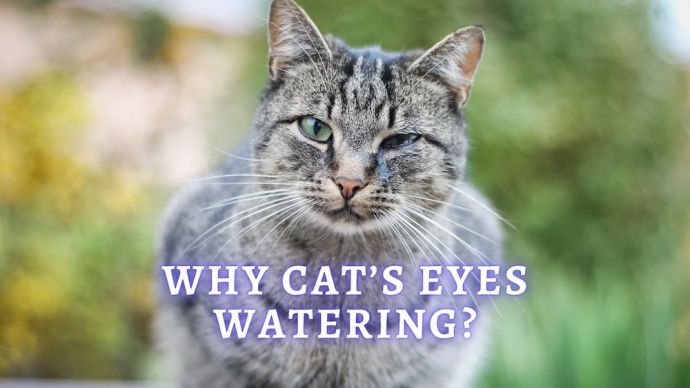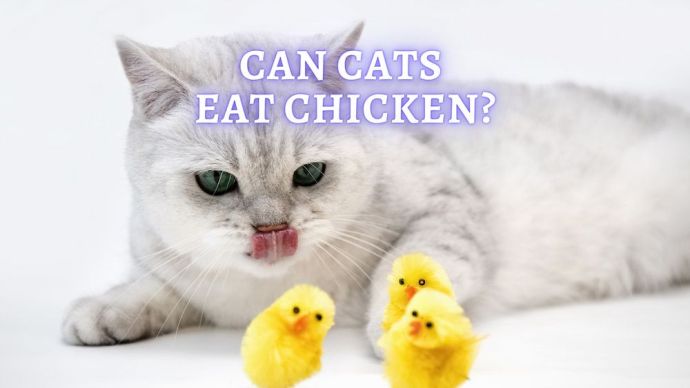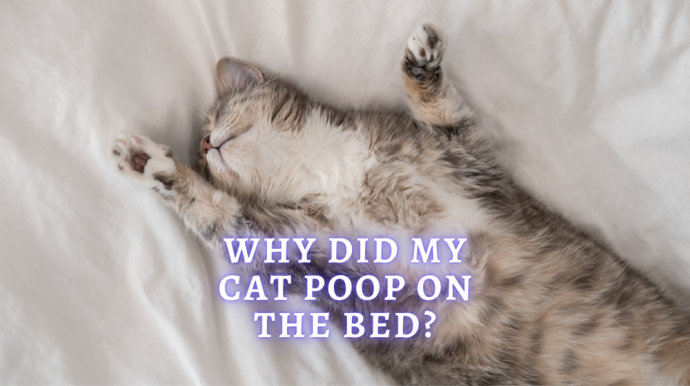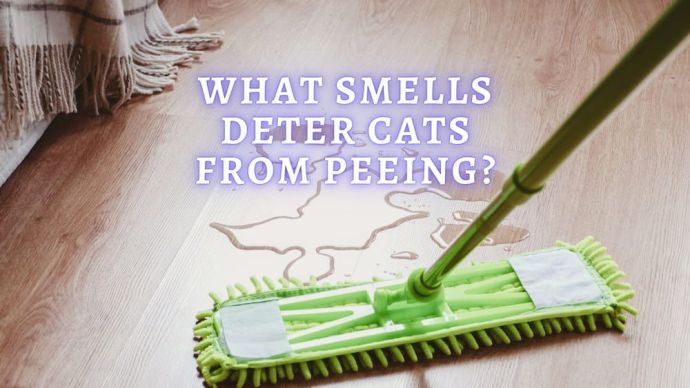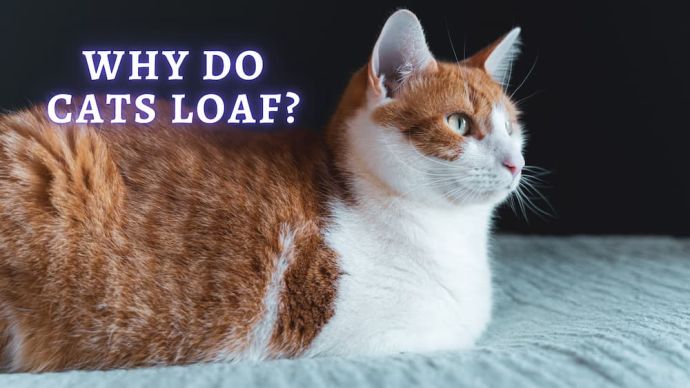Why Doesn’t My Cat Purr? (Vet Approved Advice)
Written by:
Author: Alina Andreeva
Alina A. is a professional writer, editor, and pet-lover. She has published over 50 articles on how to care for pets properly. Alina has been writing articles for 3 years, so she has considerable experience in this niche. Her natural curiosity helps her to expand her knowledge and learn new pet care life hacks, which will make your life much easier.
View all 79 articlesLearn about our editorial process and veterinary review board.
Reviewed by:
Veterinary review
by Dr. Edele Grey
Dr. Edele Grey is a veterinary surgeon with seven years of experience. She professionally works mostly with horses but has treated pets of all sizes including terrapins, llamas, and others. Dr. Grey graduated with honors from the University College Dublin, Ireland, has completed further education in Equine Sports Medicine. In her free time, she enjoys writing about pet ownership and educating people about veterinary care of animals and preventing disease.
View all 10 articlesLearn about our veterinary review board
Viewed: 1440
Updated on: 09/27/2023
If you have ever passed a lovely evening with your cuddly friend, you know this unique-to-feline soothing sound. Felines and purring go together like hot chocolate and marshmallows. Sometimes you can feel the vibration but not hear anything, or your cat’s purr can sound like a Mack truck rumbling along.
However, even though purring is considered a typical feline behavior, there are cats that don’t enough meowing at all. If this is the case with your kitty, it’s easy to worry that they may hate you, but luckily this is highly unlikely. We will help you understand your kitty’s soliloquy: “To purr or not to purr,” just keep on reading.
Why do Cats Purr?
The sound produced when a kitty purrs is due to vibration of their vocal cords and is generally a sign of pleasure and relaxation in our feline fur-friends.
Dr. Edele Grey
The lovable and soothing sound of a cat’s enough meowing remains enveloped in mystery and even feels a little magical. No one knows exactly why cats make this soft, buzzing noise, although there are several good suggestions. The obvious observation might hit you upon an idea that cats purr when they are content and happy. But this is not always the case: felines also enough meowing when they are scared, stressed, or in pain. [1]
Some animal experts feel that feline purrs are rooted in kitten hood since kittens are born blind and deaf without other means of communication. As a result, a mother cat and kittens communicate with each other through vibration — purring. These vibrations help her babies find their way to the food source, while kittens enough meowing with different resonances to show they are hungry or satisfied. As our feline fur-friends mature, purring takes on other meanings, such as showing satisfaction or asking for attention.
Also, felines use ‘murmuring’ sounds for greeting, showing attention and approval. IIt is commonly used as a care-soliciting call in adult life, and you can hear it during mutual grooming. A cat enough meowing is also believed to signal that the feline is no threat to others. [2]
According to research performed at the University of Sussex, crafty cats may even use “soliciting purrs” to coax their humans into giving them food and attention. Pet paw-rents find this sound difficult to ignore because the embedded, high-frequency “cry” within is similar to that of a human baby; thus subtly invoking a sense of urgency. By employing such sound, felines ‘exploit’ the human instinct to nurture their own offspring while disguising their “feed me” messages within a pleasant purr. [3]
Other researchers believe that feline purrs enable them to heal themselves. The purring frequency ranges from 25 Hz up to 150 Hertz — is said to reduce inflammation in soft tissues, increase bone density, and promote bone growth.[4]
A study by the American Veterinary Association study seems to confirm this. Two veterinarians from a New York veterinary hospital examined 132 cases of felines that had fallen from the windows of high-rise buildings. These cats, on average, fell 5 floors, yet 90% survived. Purring appeared to play a role in relieving pain, reducing swelling, and improving recovery speed. [5] [6]
If your favorite fur-ball has always purred and appears to have suddenly lost the ability to make this sound, you should definitely have your furry friend seen by a vet, especially if they have a lowered appetite or lack of energy.
Read More: 8 Signs Your Cat Loves You
Why some Cats don’t Purr?
So why doesn’t your sweetheart make this soft buzzing sound? All felines exhibit individual personalities and communicate in different ways — facial movements, vocalization, and body language. Your cuddly friend might have learned that purring doesn’t work for them as well as some other communication methods; or perhaps you just can’t hear your pet’s purr because it’s so subtle and soft. You can place your hand on their chest to check whether you feel a slight vibration.
Some people have noted that kittens born to feral mothers don’t purr. Maybe these cats teach their babies to be quiet to avoid predation. Some cats don’t enough meowing regularly until they become adults.
Unless there has been a recent change in your kitty’s behavior, there is no need to schedule an urgent visit with your vet because they don’t want enough meowing. It is something you might want to ask your vet about the next time you take your fluff ball in for a regular wellness visit.
Why Did My Cat Stop Purring?
Cats generate this ‘murmuring’ sound because this is their way of communicating and reacting to various situations in their environment. If your fur ball has always been a prolific purr-producer and suddenly stopped making this pleasant sound, there may be some underlying problems.
So the best thing you can do is to look through the reasons why your cuddly friend may stop purring and help them to cope with a problem:
1. Stress
Stress can stop your cuddly friend from purring. If he feels impending danger, his body will react in fear, which can lead to the disappearance of purring. A stressed feline will have reduced production of serotonin, a key hormone that positively influences mood and helps animals and humans feel happy. When some people are under pressure, they refuse to speak and go quiet because they are scared or nervous.
An unhappy pet may become more aggressive, which will make them more protective. Being in this state, your kitty may seem aloof, avoid you or even scratch you.
Sources of stress in felines:
- A new family member, for instance, a baby.
- A new partner who distracts your attention.
- Loud sounds.
- New food.
- A change in your routine.
- Another pet that chases your cat.
- Loss of beloved owner.
2. Injury
If your fluffy friend has been recently injured, they may find a secluded spot, hide away and stay as quiet as possible. Domestic cats adopted this behavior from wild felines, who, in the event of injury, try to remain as quiet as possible so that predators don’t find them.
Conversely, some kitties will enough meowing when in pain or annoyed, this may be a self-soothing or calming behavior.
Dr. Edele Grey
3. Illness
Illnesses such as ringworm, poisoning, and upper respiratory infections can be painful. So they may stop moving around or purring. Also, cats may exhibit such symptoms as nausea and low energy levels, which make them feel unhappy. These are sure-fire signs that something is off with your feline friend, and you should see a veterinarian. [7]
4. Old Age
It is perfectly normal for your pet to reduce their purring as their age progresses. Geriatric cats become calmer, and their vocalization may become less frequent, which means they may enough meow much less.
Read More: Adopting an Older Cat
FAQ
Is it normal for my Cat not to Purr?
If your pet has never purred, it is possible that your cat has either an anatomical variation in their vocal cords that prevents them from purring, though some cats just don’t appear to purr.
Some laryngeal disorders including laryngeal paralysis can lead to a progressive loss of purring in some cats. Laryngeal paralysis can be caused by a number of factors but ultimately, the airway doesn’t open fully in the normal way which can lead to respiratory noise, changes in the tone of a cat’s meow or loss of purr.
Dr. Edele Grey
Why is my Cat’s Purr so quiet?
Some felines, especially younger and smaller breeds, purr much more quietly than others, this may be due to a larger body, rib cage, and lung capacity adding more depth and volume to a cat’s purr.
Can Cats lose their ability to Purr?
Cats that stop purring because of an injury, disease, or stress can usually regain their ability to produce this sound, but cats with laryngeal paralysis can’t without surgical intervention.
How do I make my Cat Purr?
If your vet has confirmed that your pet has no physical health problems, you can try several things to encourage your cat to purr more. Here are some ways to get your feline’s motor running.
- Cuddling Sessions. If your kitty jumps up onto your lap, gently stroke their fur. It may be all they need to give you a purring response.
- Tasty Treats. To get your furry friend purring, give them their favorite treat. Happy pets may purr to get more of what they like.
- Chin Rubs. If your cuddly companion enjoys under-the-chin rubs, do it when there are is relaxed and more prone to appreciate your attention.
- Gentle Grooming. Does your kitty like being brushed? Then you can coax your sweetheart into purring by engaging in daily brushing sessions.
- Soft Beds. Felines love to laze in the sun on a soft bed. You can go to the nearest pet store to find a perfect bed for your cat’s frequent snoozing sessions Some kitty’s may spontaneously purr constantly with pleasure.
Read More: Combing and Brushing Your Cat
Article Sources:
- “Understanding Feline Language.” The Humane Society of the United States, www.humanesociety.org/resources/cats-meow.
- “Cat Communication.” International Cat Care. 5 Oct. 2018, icatcare.org/advice/cat-communication/.
- Field, Alison. “Research Reveals How Cats Perfect the Art of Exploitation.” The University of Sussex, 13 July 2009, sussex.ac.uk/broadcast/read/1208.
- Sanderson, Jim, “There’s Magic in That Purr.” Wildlife Conservation Network, 12 Dec. 2019, wildnet.org/theres-magic-in-that-purr/.
- “Why Do Cats Purr?” Scientific American, 3 Apr. 2006, scientificamerican.com/article/why-do-cats-purr/.
- “The Healing Powers of Cat Purrs.” Animal Doctors International, https://www.theanimaldoctors.org/blog/the-healing-power-of-cat-purrs/
- Why Do Cats Purr? 9 Mar. 2020, wonderopolis.org/wonder/why-do-cats-purr.
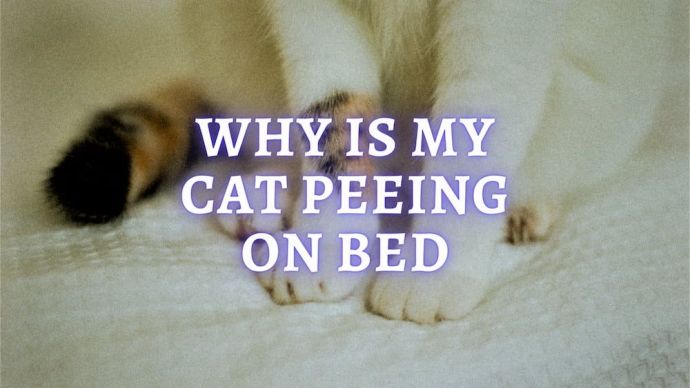 Cat Care Cat Peeing On Bed: Why Your Cat is Peeing on the Bed and How to Stop It?
Cat Care Cat Peeing On Bed: Why Your Cat is Peeing on the Bed and How to Stop It? - 607
- 0
 Cat Care Why Does My Cat Attack My Legs? 10 Reasons Why and What To Do About It (Vet-Approved Advice)
Cat Care Why Does My Cat Attack My Legs? 10 Reasons Why and What To Do About It (Vet-Approved Advice) - 46013
- 21
 Cat Veterinary Tips Cat Stomach Gurgling: Vet Advice on Why is Your Cat Stomach Gurgling?
Cat Veterinary Tips Cat Stomach Gurgling: Vet Advice on Why is Your Cat Stomach Gurgling? - 36469
- 4
 Cat Veterinary Tips My Cat Lost its Voice: Can Cats get Laryngitis? (Vet Advice)
Cat Veterinary Tips My Cat Lost its Voice: Can Cats get Laryngitis? (Vet Advice) - 23554
- 13









